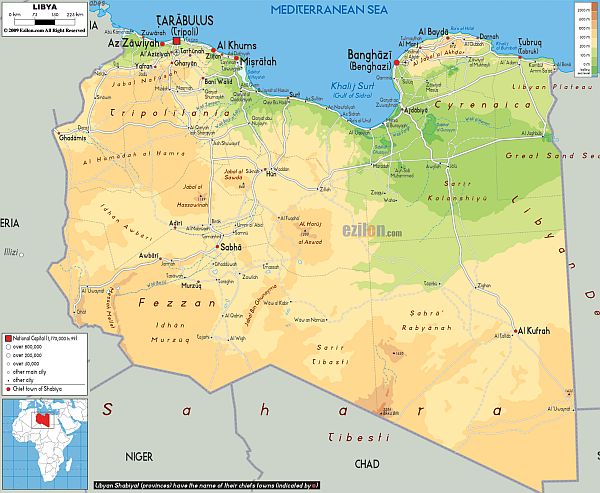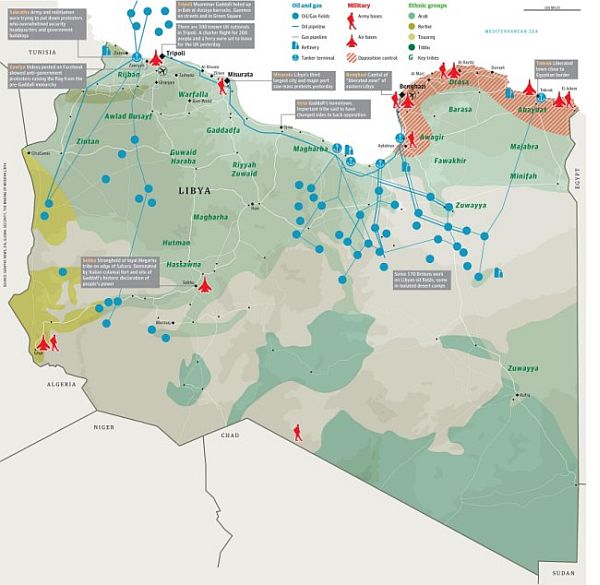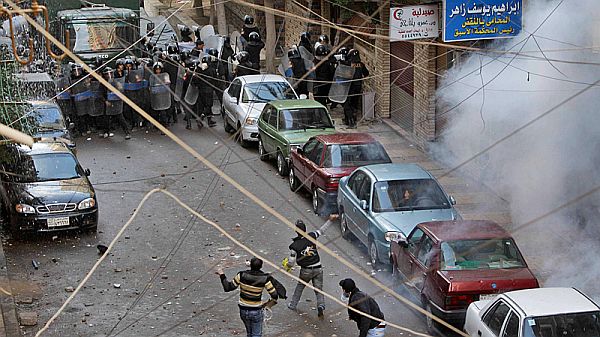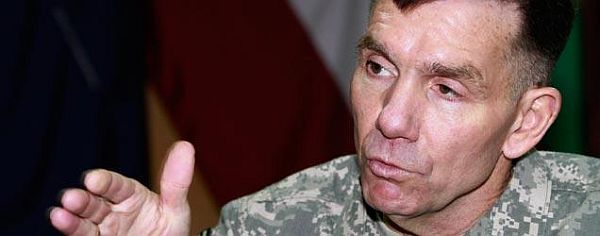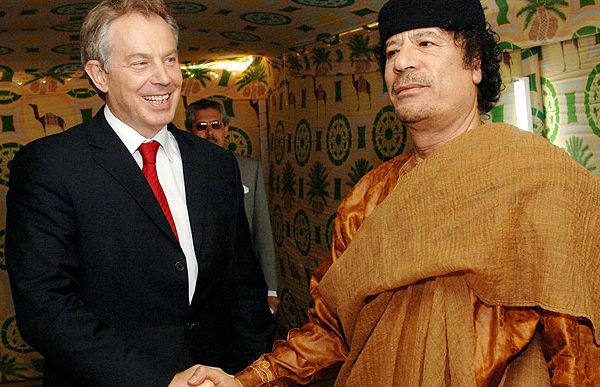Issa Khalaf writes:
As soon as news emerged that the Libyan protestors were also planning to take to the streets, I was horror-struck. This wasn’t going to be Egypt or Tunisia, or even frightened emirs, sultans, and monarchs. Libya has neither Egypt’s vibrant civil society nor developed institutions, nor a military that can easily challenge Qadhafi’s rule. Colonel Mu’ammar al-Qadhafi – variously, Guide of the First of September Great Revolution of the Socialist People’s Arab Republic, great leader of the al-Jumhuriyya al-‘Arabiyya al-Libiyya, the General Commander of Libya’s Armed Forces, the Head of [every] Council of State and of the Arab Socialist Union, the learned author of the al-kitab al-akhdar (Green Book), the Brotherly leader and Guide of the Revolution, Africa’s King of Kings, Supreme Leader regally surveying his kingdom or majestically visiting abroad accompanied by an elite, armed female bodyguard corps, ubiquitously, honorifically titled leader without official state title – was not about to take rejection lightly. Nor is this eccentric megalomaniac, a caricature of himself, about to let go of power after four decades, his son essentially in the same breath raising the spectre of social disintegration without the Leader and unleashing the full, bloody fury of the state.
True, permanent rulers everywhere don’t easily let go of one of life’s foremost aphrodisiacs, power, and can’t conceive that anyone else can rule their subjects like them, with their benevolent patriarchy. They all crave the attention and revel in the whimsical arbitrariness that accompany being number one, including hobnobbing with world leaders. Qadhafi’s flamboyance, including his romanticized ‘tent’ outings and a costume for every occasion and genre, was once curious, with an air of populism about it. But his African-style personal rule has not been a laughing matter for decades, and his endless speeches on TV and lectures to foreign audiences, including western women on converting to Islam, have nauseated his people. This ageing, narcissistic, deluded man, ruling over merely 5-6 million people in a petroleum-rich country the size of Alaska, cannot possibly accept the reality of letting go of all this, or that his people don’t want him, hence his rage and violence against them.
Qadhafi, like his now absent Egyptian counterpart, is symptomatic of Arab rulers’ stunning, unenlightened failure to pay any regard to placing their people’s future and well-being, much less encourage institutional inter-Arab cooperation for the sake of social and economic development, over their own immediate self-interest. (Whatever criticism one reserves for Egypt’s Jamal ‘abd al-Nasir, his attempt to live by principle, humbly refusing to enrich himself or his family, is admirable by today’s kleptocratic standards.) The Libyan dictator is what old Arab nationalism-turned-authoritarianism – including its ‘radical’ versions found in the regimes of Algeria, Syria, Iraq and the now hapless PLO, or ‘socialist republics’ such as Tunisia or Egypt – has wrought. This amounts to bureaucratic or tyrannical one party or no party states, violently crushing civil society, suffocating public space, privately owning and enriching themselves on state resources.
That insistent, ancient character of élite Arab political culture – the reliance on narrow social groups and classes, those with wealth and economic power to sustain an unwritten contract maintaining the dictator’s rule and circulating power within the state – has not yet disappeared. If anything, it has been supplemented in the last fifty years by secretive, shadowy, Qadhafi- and Saddam-like personality cults and intelligence services. All Arab regimes, regardless of regime type, have essentially behaved like dynasties.

